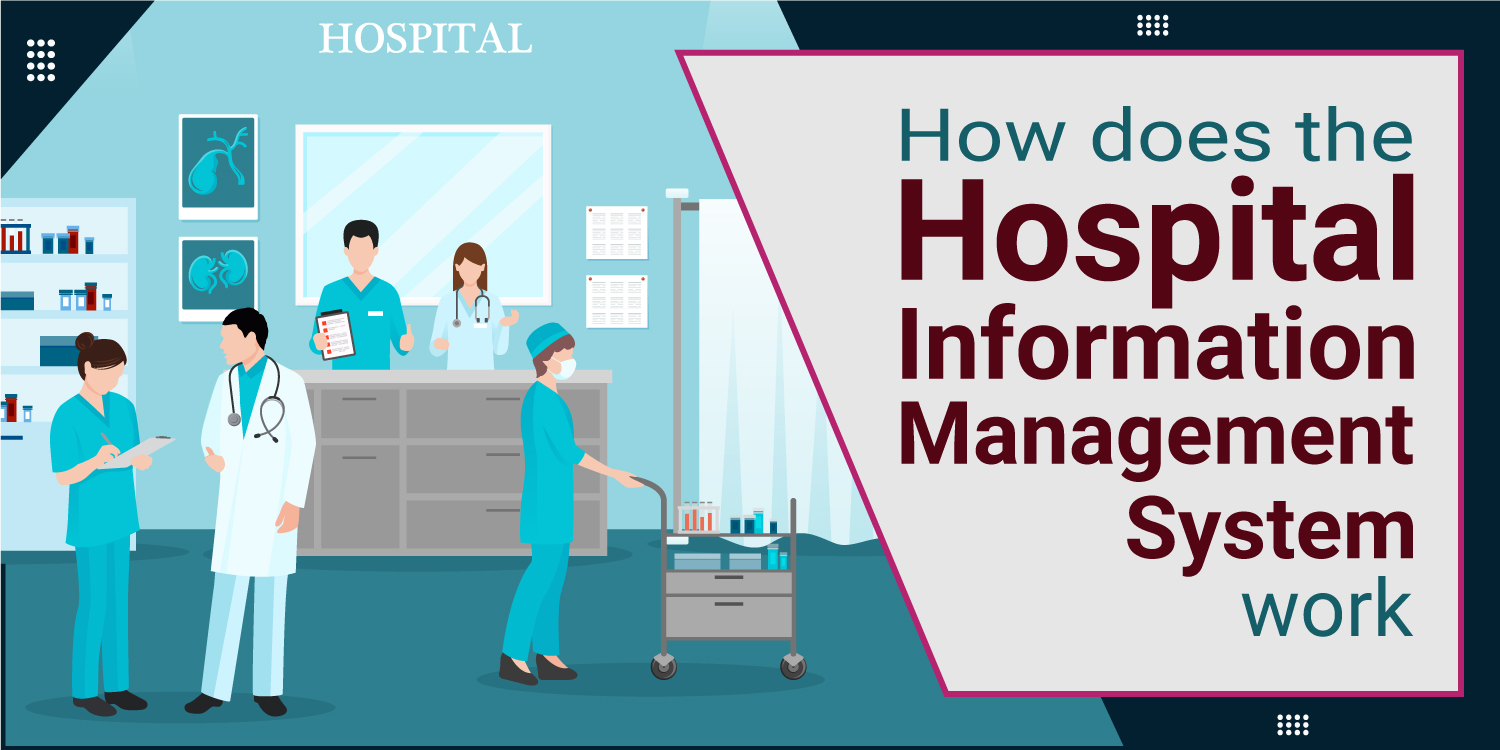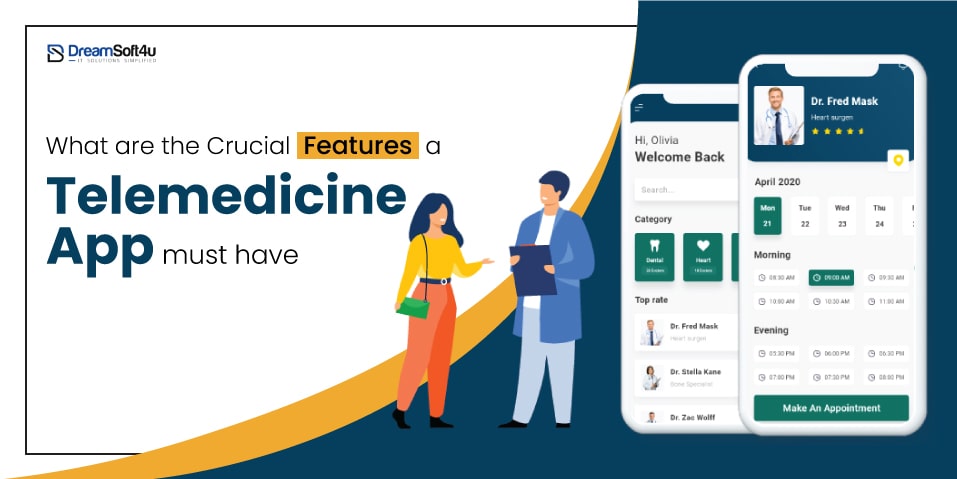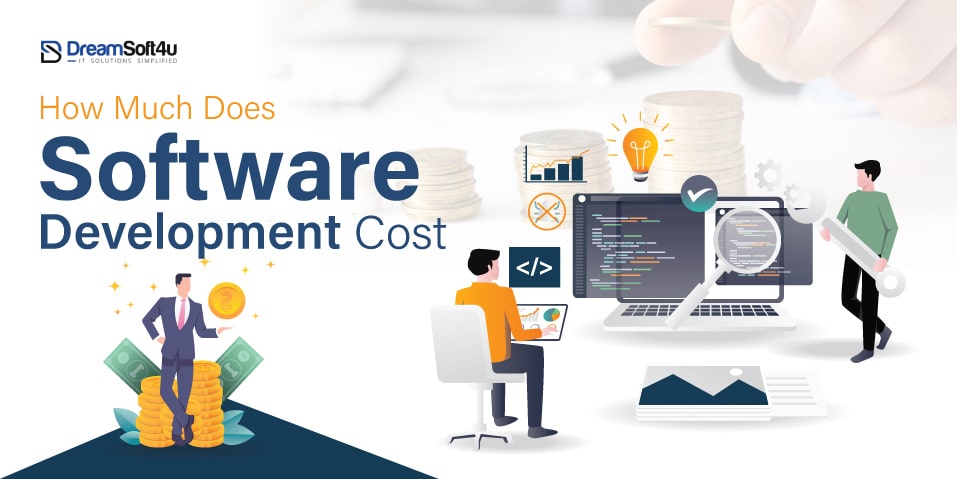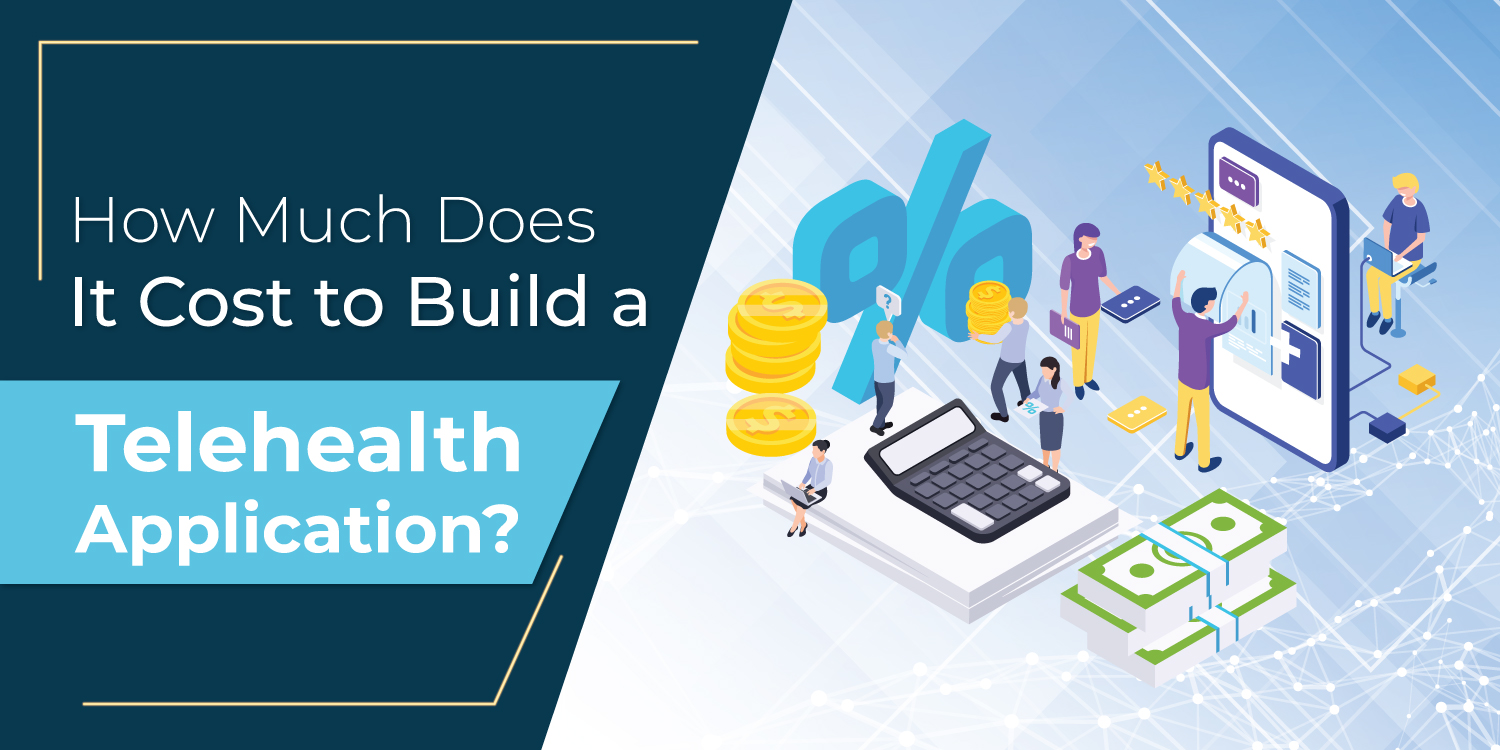Healthcare organizations and professionals need software systems that not only streamline the delivery of care but also speed up their routines and eventually increase patient outcomes in an age where cutting-edge technology is changing virtually every area of human life. Healthcare software will cover a wide range of applications. Here we’ll learn about what Custom Healthcare Software Development its benefits, and how to develop a healthcare app.
The global demand for the production of healthcare applications is now huge, with analysts saying that by 2025, the industry will expand at a CAGR of 5.8% to hit $19.3 billion.
One of the most significant variables in the healthcare sector is efficiency. Technological development faces more problems than ever before. Customers expect evidence and process accountability. As a result, the Custom Healthcare Software Development sector is moving towards transforming patient care and experience through a patient-centred approach.
Table of Contents
ToggleWhat is Healthcare Software?
Healthcare software development will cover a wide range of kinds of applications. In general, however, it is described as the development of knowledge-based IT services that provide decision support and advice, assistance, and input to healthcare professionals.
These systems streamline and optimize the management side of operations and provide patients with a greater level of treatment.
It is necessary to remember that the development of healthcare technologies should not aim to take decisions out of the hands of qualified human practitioners. It will, however, go a long way towards supplying certain human decision-makers with real-time assistance, taking repetitive activities off the docket, and streamlining patient care as well as administrative management.
Role of Software in Healthcare
The role of software in healthcare is undeniable. From reshaping health management to massively reducing errors and mishaps, healthcare software development enhances patient care and outcomes.
The COVID-19 pandemic has further accelerated the adoption of digital health applications, such as telehealth and remote patient monitoring, to ensure the efficient and safe delivery of healthcare services.
The adoption of digital solutions in healthcare is projected to continue growing, with the IT sector in healthcare expected to reach a staggering $662 billion by 2026. This emphasizes the immense potential and opportunities that lie in healthcare software development.
DreamSoft4u Since 2003
Get your free quote by the top professionals.
An Overview of the Healthcare Software Development Industry
The healthcare sector is in a significant transformation to digital technology. When a hospital, clinic, or startup invests in custom healthcare software, it is expected to improve the lives of patients, enhance operational efficiency, and ultimately, if you are a for-profit institution, generate revenue.
Here is a quick overview of the healthcare software industry:
- The global healthcare software market is projected to experience 18.5% CAGR growth from 2022 to 2030.
- The healthcare SaaS market is expected to grow from $23.95 billion in 2024 to $27.66 billion in 2025, driven by the adoption of cloud computing.
- The telehealth market is forecasted to grow from $87.4 billion in 2022 to $286.2 billion by 2030 based on the outcome of continuous improvement in virtual care settings as an acceptable standard of care.
- The EHR market is projected to reach approximately $47.25 billion by 2027, driven by demand for improved data integration of healthcare records.
- The AI market in healthcare is anticipated to be worth approximately $29 billion by 2024. It is projected to grow to $39.3 billion by 2025.
- The healthcare enterprise software market grew to $40.3 billion in 2024 and is expected to more than double by 2032 to $111.1 billion.
These numbers demonstrate why custom health care software is being supported by innovation through digital transformation, AI, and cloud technology.
Impact of Custom Healthcare Software Development
With the advancement of technology, custom healthcare software development is transforming the healthcare industry in various ways. Some of the most popular types of medical software include telemedicine, electronic health records (EHR), hospital management systems (HMS), tracking apps, e-prescribing software, and remote patient monitoring (RPM).
- Telemedicine software enhances communication and aids in monitoring patient health remotely and providing personalized care plans.
- Electronic health records (EHR) eliminate the need for paper-based records and reduce administrative workload.
- Hospital management systems (HMS) help in better managing hospital equipment and resources, leading to increased efficiency and cost savings.
- E-prescribing software simplifies the prescription process, minimizing errors and improving medication management.
- Remote patient monitoring (RPM) allows for continuous monitoring of patients’ vital signs, enabling early detection of any health issues.
As the adoption of digital solutions grows at pace, custom healthcare software development will play a pivotal role in shaping the future of healthcare. These solutions not only meet the specific needs and requirements of healthcare organizations but also help them progress toward their digital migration goals.
Types of Healthcare Apps
Healthcare applications can be classified into two different categories: patient healthcare apps and medical specialist healthcare apps.
1. Healthcare Apps for Patients
- Fitness apps
- Medication apps
- Diet and nutrition apps
- Mental health apps
- Diabetes management apps
- Diagnosis apps
- Appointment scheduling
2. Healthcare Apps for Medical Doctors
- Telemedicine
- Patient health tracking
- Professional networking
- Clinical assistance
- Electronic medical records
- Electronic prescription
Read Also: Middleware Software Development for the Healthcare Industry
Feature List for a Medical App
A medical app’s must-have features include:
- Sign up: To take advantage of the application, it asks users for certain information, such as their mobile phone and email address, to register them. The purpose of this feature is to monitor visits to your applications.
- Tracking: Tracking, as a central feature of health apps, helps streamline consumer usage and capture app use frequency and is important for surveillance in fitness apps and applications related to recovery.
- Appointments and Scheduling: This role helps consumers to get drug intake updates and reserved appointments. In specific, booking has several built-in options to allow consumers to plan flexibly and to promote contact between users and providers of healthcare.
- Payment: Given that consumers love features that save time, it is important to provide a payment feature as it ensures that users can quickly order it expecting prompt delivery of the service.
- Push Notifications: Reminding the users or patients about their upcoming appointments is definitely a smart thing. When it comes to online video consultations, the feature ‘push alerts’ is helpful. It is possible to send alerts to the customer 5-10 minutes before contact.
- Real-time Chatting: This functionality helps users to view text exchanges and promote contact with patients in real-time. In addition, it offers rich data collection that allows for enhanced alerts.
- Ratings and Reviews: Searching for trustworthy physicians or clinics for modern users is closely related to noticeable appraisal in ratings and reading feedback from actual co-users, making this a must-have item on the list.
- Geo-location: Integrating the app with Google Maps or other third-party map providers will save the life of the user, in addition to optimizing the user interface, since it helps a healthcare worker locate a patient’s location in emergency situations.
Benefits of Custom Healthcare Software Development
Below are a few key advantages of custom healthcare software development for the healthcare industry.

• Advanced Diagnosis
In order to provide better operations management and, at the same time, innovative diagnosis, software development, and technologies have the potential to revamp the healthcare sector.
• Cost Reduction
It lowers prices and lets patients optimize all spending as patients can talk with doctors without the need to see them directly. In comparison, healthcare applications do not require a significant volume of manual labour.
• Increase in Patient Expectations
The secret to every industry’s growth is the greatest patient service. The introduction of technology is raising the demand from healthcare providers for better service and treatment for patients.
• Data Security & Privacy
Every day, the healthcare industry produces a huge chunk of data and is customer-sensitive. And data protection is also a key concern in this field. Hybrid apps aim to protect the data of patients from any malware threats or data breaches. In such a personalized program, patients feel safe when sharing their personal details.
Each cloud, email service provider, search engine, chatbot, website, and framework is now HIPAA compliant to provide maximum data protection.
• No Boundaries
No matter how far from a patient or doctor is. Communicating with each other is still possible; an Internet connection is the only thing required. There will still be remote care treatment open.
• An Integrated and Multi-platform System
The custom healthcare software integrates the different workflows run on a regular basis by the healthcare industry. Custom applications can synchronize many basic and complicated processes in one location, including human resources, banking, OPD, inventory, etc.
Read Also: Functions to Integrate in Healthcare Software Development
How to Develop a Healthcare App?
1. Identify a Problem
In the industry, there is an explosion of mobile healthcare apps. How is yours going to add some added benefit to end clients and set you apart from the rest? To find holes your product can address and challenges it can theoretically fix, you need to perform comprehensive market and industry analysis.
Talking to physicians, nurses, hospital management personnel, patients, and other main audiences can give you an insight into how to make a truly useful, functional product.
2. Get to Know Your TA
75% of the US hospitals wanted to deliver the healthcare app without its target users’ preliminary analysis; in fact, only 2% of all patients used the service.
The industry and climate where the MVP healthcare software is introduced is another critical factor to examine. In the nation that you are targeting, the most critical factor is following all the mobile healthcare legislation.
3. Choose Your App Features
When you know what product you want to create, who’s going to use it, and for what reason, you’re able to begin narrowing down your app’s functionality. For example, applications for technical assistance may require a dashboard that visualizes various data in one location, but may not need one at all for a lifestyle app.
4. Test & Receive Feedback
The primary aim of the development of healthcare mobile applications is to release the initial edition of an app to the public as quickly as possible. Based on customer reviews and your strategy, any subsequent version should be revised. This will help you prevent huge failures and financial risks that will arise if the entire package is released all at once.
Beta reviews, distribution tests, user feedback, and client reviews all provide invaluable evidence on the current project plan.
5. Widespread Distribution
App delivery is solely based on its intent. Those created for a particular community of users can be accessed from a connection that is generated. It’s advisable to build a private business app store for a broader audience within a single company. This will include access to analytics for app developers to allow them to focus on potential updates.
Why is it Better to Outsource Custom Healthcare Software Development?
Here’s a reason why businesses are willing to outsource custom development for healthcare software:
- Lower costs: It helps reduce significant expenses, such as office rent, payroll, and employee benefits. What that means is that your budget will go a long way without taking a backseat to overhead.
- Access to the world’s top talent: Outsourcing allows you to get skilled developers and healthcare technology specialists across the globe.
- Focus on your core: Your organization can concentrate more on patient care and its core responsibilities, rather than managing or training a full-time development team.
- Deliver quicker: Offshore teams usually have the experience and tools ready to go, allowing your project to get off the ground rapidly without the lengthy process of onboarding and finding new team members.
More flexibility: Outsourcing is simpler and easier to adjust to changes in team size or involve specialists.
Read Also: Healthcare Software Development Guide
What are Some Different Forms of Applications in Healthcare?
Healthcare software is a wide field, ranging from practice management solutions to 3D medical model rendering software (DICOM). Some popular custom healthcare tech solutions are illustrated in the list below. Although they don’t cover any form of technology relevant to healthcare, they’re a decent place to start.
1. Electronic Health Record (EHR)
An Electronic Health Record is the easiest way for care practitioners to keep track of patient records (also sometimes called an electronic medical record or EMR). Real-time, patient-centred records from EHRs allow information to be accessible to registered users quickly and safely. Which contains medical history information, diagnosis, prescription, recovery plans, dates of immunization, allergies, pictures of radiology, and findings of laboratory and research?
2. Telemedicine
Telemedicine is a growing problem that is ideal for personalized software solutions, particularly in the era of lockdowns, quarantines, and reducing the vulnerability of at-risk patients. The telemedicine app is expected to cross a market size of $64 billion in the United States alone by 2025.
Instead of forcing the patient to drive all the way to the hospital, certain physicians provide the option to visit via a video meeting online. For people who are very ill or unwilling to go to the hospital, this may be a huge help. These devices must be capable of delivering face-to-face conferencing, screen sharing, and the transfer of photographs safely.
3. Pharmacy
A pharmacy is fundamentally a diverse shopping environment. Stock inflow, wholesale arrangements, inventory, case care, and prescription lists are required for management. There are also restrictions on controlled drugs and the privacy of patients. Customized pharmacy apps will help pharmacies track patients and drugs, streamline practices, and keep them in accordance with the legislation.
In addition, healthcare providers require a reliable means of delivering electronic prescriptions to pharmacies safely. This is also combined with the EHR so that only one software needs to be used by the practitioner.
4. Hospital Management Systems
Designing healthcare applications to take care of any part of hospital operations, including laboratories, staffing, and reception, is what it looks like. It manages all hospital administrative functions, including hospital billing, insurance collection, management of patient records, medical administration, and information management for clinicians.
5. Revenue Cycle Management Software
Although medical treatment and maintenance come first, healthcare services are also entities and thus have funds to worry about. To have an overall fiscal outlook, medical workers need a clear way to check benefits, submit bills, follow up on receipts, process claims, and evaluate results.
As they make an appointment or send a paperless bill with an easy online payment portal, a device that is combined with a patient portal can do things such as verify the insurance status of a patient automatically.
Key Considerations for Custom Healthcare Software Development
When planning to build custom healthcare software, keep these points in mind:
- Understand your goals and specific needs
- Choose a trusted and experienced development partner
- Make sure your solution stays compliant and secure
- Plan for smooth rollout and user training
- Build for scalability so your software can grow with your organization
Want to Build a Custom Healthcare Software For Your Business?
Connect with our team of experts to get a tailored solutions.
Conclusion
DreamSoft4u is a Custom Healthcare Software Development company that helps enterprises and startups globally. We do have more than 20+years of extensive experience in the Healthcare IT industry, including technology and industry domains.
We work with our customers, mostly enterprises and startups, to support them in growing their business and turning them into successful and high-performance organizations.
FAQ’s
Q1. What is HIPAA compliance in healthcare software development?
HIPAA compliance, or the Health Insurance Portability and Accountability Act, sets essential standards for data security, ensuring patient data privacy and confidentiality.
Q.2 How do developers ensure data security in healthcare software?
Developers employ robust encryption, access controls, and audit trails to protect patient data, preventing unauthorized access and maintaining data integrity.
Q.3 What coding standards are crucial in healthcare software development?
Adherence to coding standards like HL7 for efficient data exchange, ICD-10 for accurate diagnosis coding, and SNOMED CT for clinical terminology ensures data consistency and compatibility.
Q.4 How is interoperability maintained in healthcare apps?
Interoperability is achieved through standardized protocols and APIs like FHIR, enabling seamless integration with existing healthcare systems.
Q.5 What about user accessibility in healthcare software?
Compliance with WCAG and ADA standards ensures that healthcare software is user-friendly and inclusive for all individuals, regardless of their abilities.
Q.6 How do healthcare apps manage data consent and authorization?
Healthcare apps incorporate consent and authorization mechanisms to meet legal and ethical requirements, allowing patients to control their data sharing.
Q.7 How are scalability and flexibility ensured in healthcare software?
Scalability and flexibility are ensured through cloud-based architecture, allowing healthcare software to adapt to growing data and user demands, providing a responsive and efficient system.


















